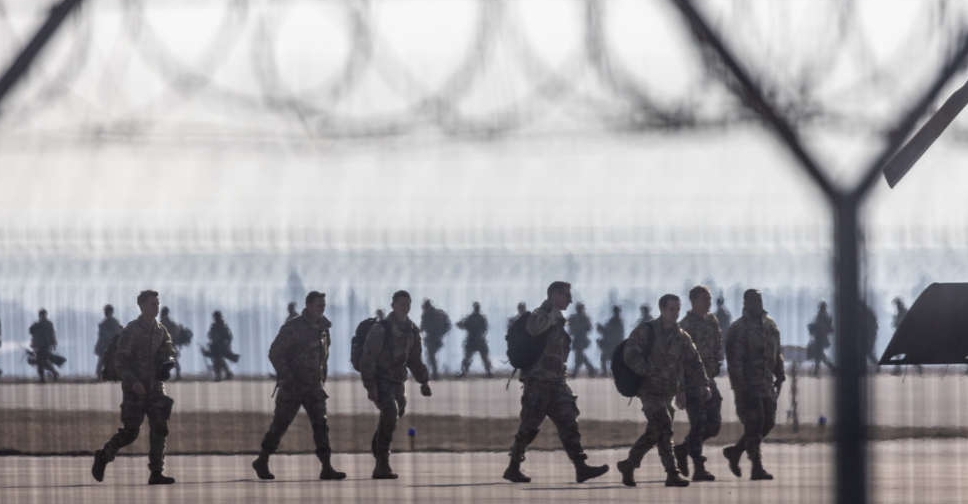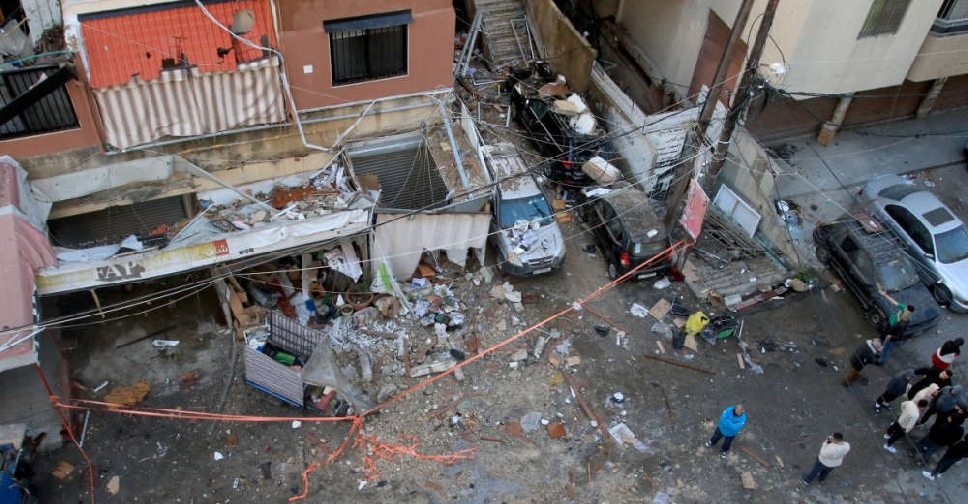
There is a growing Russian military presence at Ukraine's borders, Western countries warned on Wednesday.
More armored vehicles, helicopters and a field hospital have been spotted, Britain's defence intelligence chief said in rare public comments.
Up to 7,000 more troops have moved to the border in recent days, including some arriving on Wednesday, a senior official in US President Joe Biden's administration said, without providing evidence.
World powers are engaged in one of the deepest crises in East-West relations for decades, jostling over post-Cold War influence and energy supplies as Russia wants to stop Ukraine ever joining the NATO military alliance.
Western nations have suggested arms control and confidence-building steps to defuse the standoff, which has prompted them to urge their citizens to leave Ukraine because an attack could come at any time. Russia denies it has any plans to invade.
"There's what Russia says. And then there's what Russia does. And we haven't seen any pullback of its forces," US Secretary of State Antony Blinken said in an interview on MSNBC.
"We continue to see critical units moving toward the border, not away from the border."
Estonian intelligence is aware of around 10 battle groups of troops moving toward the Ukrainian border, where it estimates about 170,000 soldiers are already deployed, said Mikk Marran, director general of the Estonian Foreign Intelligence Service.
The attack would include missile bombardment and the occupation of "key terrain," he added.
"If Russia is successful in Ukraine, it would encourage it to increase pressure on the Baltics in the coming years," he said. "The threat of war has become the main policy tool for Putin."
Russia's defence ministry said its forces were pulling back after exercises in southern and western military districts near Ukraine, and Moscow's ambassador to Ireland insisted forces in western Russia would be back to their normal positions within three to four weeks.
It published video that it said showed tanks, infantry fighting vehicles, and self-propelled artillery units leaving the Crimean peninsula, which Moscow seized from Ukraine in 2014.
But NATO military commanders are drawing up plans for new combat units that diplomats said could be deployed in Bulgaria, Romania, Hungary and Slovakia.
Such units - designed to buy time for additional soldiers to reach the front line if needed - already exist in Poland and the Baltic states.
Britain will double the size of its force in Estonia and send tanks and armored fighting vehicles to the small Baltic republic bordering Russia as part of the NATO deployment.
'DAY OF UNITY'
Ukraine also increased the number of border guards on its frontier with Belarus, Russia's ally, where some 9,000 Russian troops are estimated to be involved in military exercises.
President Volodymyr Zelenskiy, who is criss-crossing the country to help bolster Ukrainians' morale, observed drills by his armed forces that included Javelin anti-tank missiles.
Wednesday was designated a patriotic holiday in response to reports Russia could invade on that day. "No one can love our home as we can. And only we, together, can protect our home," he said.
People raised flags and played the national anthem to show unity against fears of an invasion.
The government said a cyberattack that hit the defense ministry was the worst of its kind the country had seen, pointing the finger at Russia, which denied involvement.
US officials were as yet unable to say who was responsible, White House spokesperson Jen Psaki said.



 Trump fires National Security Agency director
Trump fires National Security Agency director
 Israel steps up Syria strikes, says Turkey aims for 'protectorate'
Israel steps up Syria strikes, says Turkey aims for 'protectorate'
 US sending Israel 20,000 assault rifles that Biden delayed
US sending Israel 20,000 assault rifles that Biden delayed
 Israel says it killed a Hamas commander in Lebanon
Israel says it killed a Hamas commander in Lebanon



